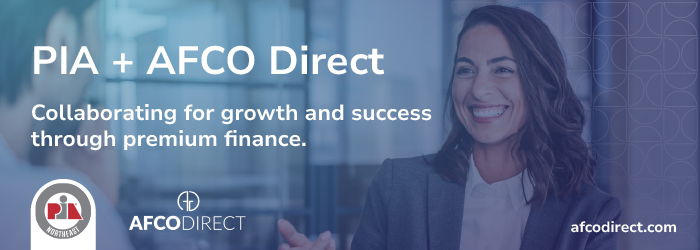News
Updating credit reports and insurance scores
Originally, insurance scoring methodology was developed to evaluate loan applicants. Then, insurers became interested in developing models that could predict underwriting results. Insurers are not required to rerun the reports on their own initiative after the policy has been issued. However, if they do, the results of that report only can be used to reduce the premium. Also, policyholders can request rerating using current data if they have corrected information in their consumer report; or if the insurer uses credit in determining renewal premium prior to a renewal. Insureds may request to have their reports run as often as they like, however, an insurer only needs to honor that request once every 36 months. PIA Northeast offers members numerous resources to help you educate your clients about their credit report and insurance score.
NHTSA updates cybersecurity best practices for new vehicles
The U.S. Department of Transportation’s National Highway Traffic Safety Administration released Cybersecurity Best Practices for the Safety of Modern Vehicles, an update to its 2016 edition. The document describes NHTSA’s guidance to the automotive industry for improving vehicle cybersecurity for safety. The 2022 Cybersecurity Best Practices leverage agency research, industry voluntary standards, and learnings from the motor vehicle cybersecurity research over the past several years, and it is updated based on public comments received on the draft that was published in the Federal Register in 2021. Though the document is nonbinding, it contains important best practices that will influence the industry going forward.
N.J.: $100M restitution payment stresses the importance of proper employee classification
The New Jersey Department of Labor and Workforce Development announced earlier this month that Uber, the ubiquitous ride share company, had made a $100 million payment to the Department of Labor and Workforce Development’s Unemployment Trust Fund. The payment was made after an audit found that Uber had improperly classified hundreds of thousands of drivers as independent contractors. Uber was assessed $78 million in past-due contributions covering employee benefits ranging from unemployment, temporary disability and family leave insurance. The company had to pay an additional $22 million interest. The $100 million payment is the largest ever in New Jersey’s history and covers 297,866 misclassified drivers. This is a reminder of why it’s important to classify your employees properly. Need guidance? PIA Northeast has resources for all the states in its footprint in its HR Info Central under the “Labor law” tab.
New York accepting applications for funding to boost resiliency and mitigate impacts of climate change
Gov. Kathy Hochul last week announced that state agencies, counties, cities, towns, villages and tribal governments throughout New York state can now apply for new funding to support initiatives designed to boost resiliency and mitigate the effects of climate change, including the threats of flash flooding, wildfires and hurricanes. This year, the Federal Emergency Management Agency will make up to $2.295 billion available to states through the Building Resilient Infrastructure and Communities grant program and up to $800 million through the Flood Mitigation Assistance grant program.
Advocacy
NFIP set to expire Sept. 30
The National Flood Insurance Program is set to expire on Friday, Sept. 30, 2022, unless its authorization is extended by Congress. The program’s most recent five-year reauthorization expired in September of 2017. Leading up to that deadline, the 115th Congress was unable to agree on reforms to the program. As a result, the NFIP briefly lapsed three times within a three-week period in early 2018. The NFIP has been subject to approximately 20 extensions of varying lengths since 2017—and unless Congress acts—its current extension will expire at the end of September, during the peak of the Atlantic hurricane season. PIA is urging Congress to pass an extension of the program for as long as possible, either as a stand-alone measure or as part of a federal funding continuing resolution. PIA strongly supports legislation that would extend it for one year (until Sept. 30, 2023), but encourages any measure that prevents it from lapsing. Ask your representatives to extend the NFIP.
N.J.: Cannabis Safe-Harbor bill moves forward
PIANJ-supported legislation, A-389, which would create a safe harbor for insurance producers and carriers working with a cannabis-related business was reported out of the state Assembly Financial Institutions and Insurance Committee—a major step toward the bill eventually becoming law. This legislation, sponsored by Assemblymen Joe Danielsen, D-17, John McKeon, D-27, and Roy Freiman, D-16, would not impact the federal government. However, it does prevent the state government from taking certain adverse actions against insurance producers and carriers. Additionally, if passed A-389 would not protect insurance producers from federal prosecution. For that, federal legislation is needed. PIANJ and PIA National have long advocated for a federal Cannabis Safe-Harbor bill and both associations will continue to do so.
Technical
NYSIF waiving credit card transaction fees
The New York State Insurance Fund is waiving credit card transaction fees for eligible small-business policyholders who enroll in, or currently use, paperless billing. The initiative is part of the governor’s efforts to provide relief and cost savings to New York’s small businesses as they continue to recover from the COVID-19 pandemic, and to promote environmental sustainability. Policyholders already enrolled in online billing also will qualify.
Educating insurance agents
N.Y.: New classes that meet the New York State Department of Financial Services’ new CE requirements are available online and in private on-site sessions.
Looking for some ethics credits?
PIA Northeast will host On the Right Path to Producer Ethics Development, a webinar taught by Stephen P. Tague, CPIA, on Tuesday, Oct. 18, 2022. The class has been approved for continuing-education credits in Connecticut (3 LRE), and New Jersey (3 ETH), and submitted for approvals in New Hampshire, New York, and Vermont—check the PIA Education Schedule for updates. In contrast to a course that offers a laundry lists of generic ethics concepts, followed by exhaustive reviews of policy forms—citing where mistakes can happen on the part of a producer—Tague has developed a hands-on approach to actual concepts that an agency producer (e.g., a salesperson, customer service representative, accounting person, or agency owner), can address to develop and maintain a superior level of ethics and best business practices in their respective and combined professions.
Register now
NEXT WEEK: Thursday, Sept. 29, 2022: PIANH Symposium
Wednesday, Oct. 19, 2022: PIANJ Women’s Leadership Alliance Golf Clinic
Tuesday, Oct. 25, 2022: Capital RAP
Thursday, Oct. 27, 2022: CTYIP Fall Reception
Thursday, Nov. 3, 2022: Save the date: PIWA Fall Reception




